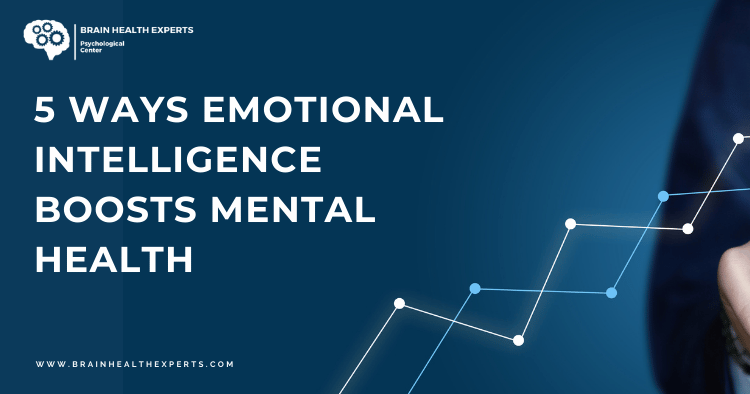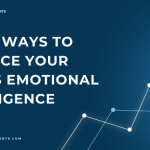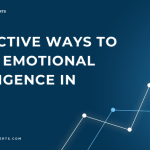Table of Contents
- Understanding Emotional Intelligence
- Enhanced Self-Awareness
- Improved Relationships
- Better Stress Management
- Increased Empathy
- Conclusion
- FAQs
Understanding Emotional Intelligence
Emotional Intelligence (EI) refers to the ability to recognize, understand, and manage our own emotions while also being able to understand and influence the emotions of others. It encompasses five key components: self-awareness, self-regulation, motivation, empathy, and social skills. As our understanding of mental health evolves, it becomes increasingly clear that EI plays a crucial role in fostering emotional well-being.
Recent studies have continued to demonstrate that individuals with high emotional intelligence experience better mental health outcomes, allowing them to navigate life’s challenges more effectively, maintain healthier relationships, and cope with stress in productive ways.
For a deeper insight into how emotional intelligence impacts mental health, consider checking out the Greater Good Science Center and the American Psychological Association.
Enhanced Self-Awareness
Self-awareness is the foundation of emotional intelligence and is vital for mental health. It involves recognizing your emotions, understanding their impact on your thoughts and behaviors, and being conscious of how they affect your interactions with others.
Benefits of Enhanced Self-Awareness:
- Improved Decision-Making: When you understand your emotions, you can make choices that align with your values and goals.
- Reduced Anxiety: Recognizing triggers can help manage anxiety and avoid situations that may lead to distress.
- Personal Growth: Self-awareness facilitates introspection, leading to personal development and healthier coping strategies.
To increase your self-awareness, consider keeping a journal to reflect on your daily emotions and experiences. This practice can highlight patterns and provide insights into your emotional landscape.
For additional techniques to cultivate a positive mindset, explore 10 Powerful Techniques to Cultivate Positive Mindset.
Improved Relationships
The ability to understand and manage emotions significantly enhances interpersonal relationships. High emotional intelligence fosters better communication, reduces conflicts, and promotes empathy, which are vital for nurturing healthy connections.
Key Aspects of Improved Relationships:
- Effective Communication: Individuals with high EI excel at expressing their feelings and needs, leading to clearer conversations and fewer misunderstandings.
- Conflict Resolution: Emotional intelligence equips you with the skills to handle disputes calmly and constructively, keeping relationships intact.
- Supportive Networks: By understanding others’ emotions, you can offer appropriate support, further deepening your connections.
Consider investing time in active listening and practicing empathy in your conversations. These skills can transform your relationships and enhance your mental health.
Additionally, you may find the article 10 Ways Positive Thinking Transforms Your Relationships beneficial.
Better Stress Management
Life is full of stressors, but emotional intelligence can help you manage stress more effectively. By recognizing your emotional responses and utilizing coping strategies, you can navigate stressful situations with grace.
Strategies for Better Stress Management:
- Mindfulness Practices: Mindfulness meditation can improve self-regulation, allowing you to respond to stressors rather than react impulsively.
- Healthy Outlets: Engaging in physical activities or creative hobbies can provide a productive outlet for emotional expression and stress relief.
- Support Systems: Building a network of emotionally intelligent friends or family members can provide a safe space to discuss feelings and reduce stress.
Incorporating these practices can lead to a more resilient mindset, contributing to better mental health and overall well-being.
Explore more on stress management with 10 Proven Stress Management Techniques for Daily Relief.
Increased Empathy
Empathy, a core component of emotional intelligence, involves understanding and sharing the feelings of others. Cultivating empathy not only enhances your relationships but also contributes to better mental health.
Importance of Empathy:
- Reduced Feelings of Isolation: When you understand others’ emotions, you can connect more deeply, combating loneliness and fostering a sense of belonging.
- Improved Emotional Regulation: Empathy allows you to step back from your own emotions, enabling you to manage them better.
- Supporting Others: By being empathetic, you can offer support to those in need, which can also improve your own mental health through acts of kindness.
To enhance your empathy, practice active listening and put yourself in others’ shoes. This will enrich your interactions and contribute positively to your mental health.
For further insights, check out 10 Ways Positive Thinking Boosts Emotional Well-Being.
Conclusion
Emotional intelligence is not just a buzzword; it’s a crucial skill that can significantly boost your mental health. By fostering self-awareness, improving relationships, managing stress effectively, and increasing empathy, you can cultivate a healthier mindset and a more fulfilling life.
To learn more about emotional intelligence and its impact on mental health, consider exploring additional resources from the Greater Good Science Center.
FAQs
- What is emotional intelligence?
Emotional intelligence is the ability to recognize, understand, and manage our own emotions while also understanding and influencing the emotions of others.
- How can I improve my emotional intelligence?
You can improve your emotional intelligence by practicing self-reflection, developing active listening skills, and engaging in mindfulness exercises.
- Can emotional intelligence impact my mental health?
Yes, emotional intelligence can positively impact your mental health by enhancing self-awareness, improving relationships, and providing better stress management techniques.
- Are there any assessments to measure emotional intelligence?
Yes, various assessments, such as the Emotional Quotient Inventory (EQ-i), can help measure your emotional intelligence.
- Where can I learn more about emotional intelligence?
You can explore resources from reputable organizations like the American Psychological Association or the Greater Good Science Center for more information on emotional intelligence and mental health.
Embracing emotional intelligence can lead to a brighter, more fulfilling life. Start your journey today, and watch as your mental health flourishes!





